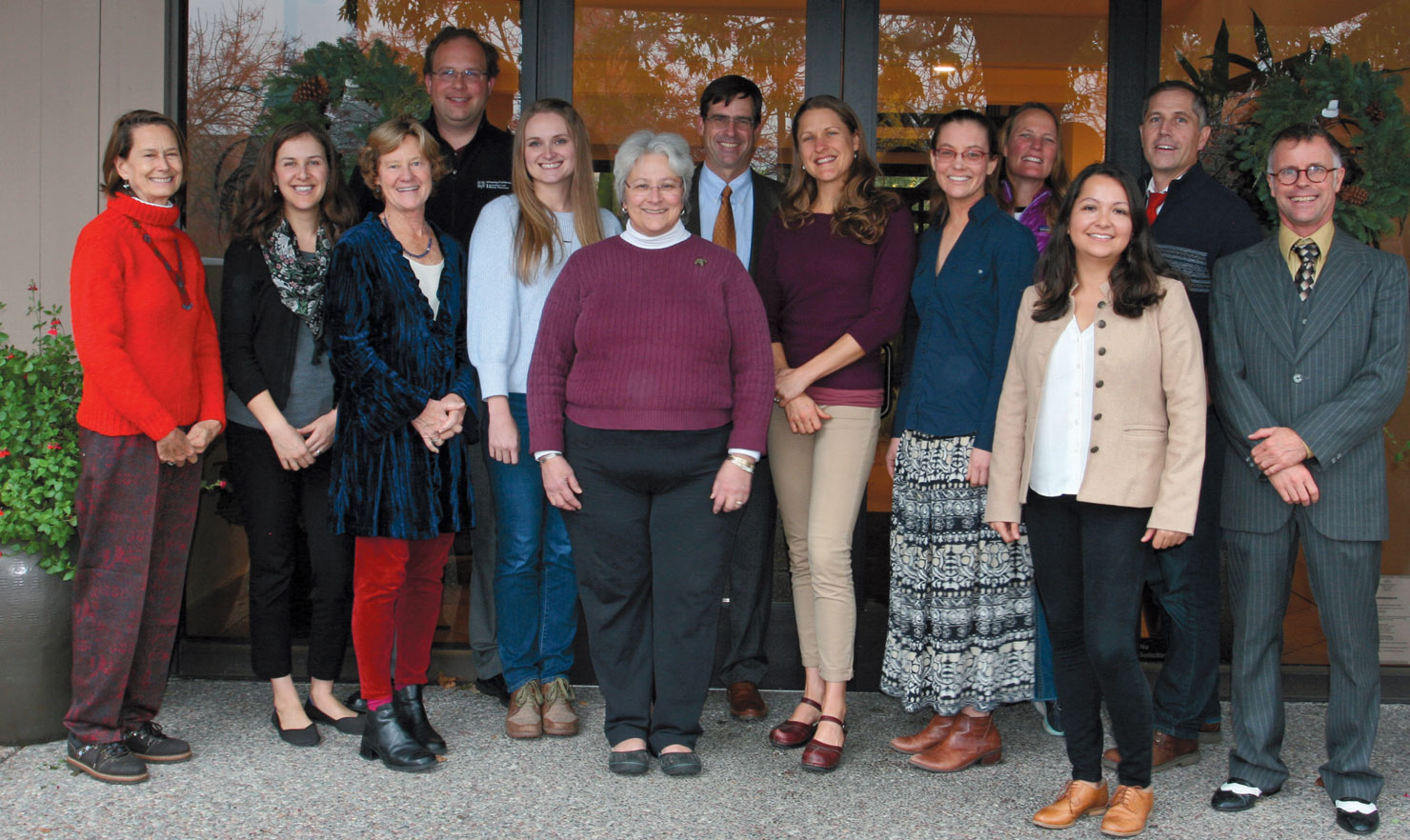Today's UCCE in Marin
This year the University of California Cooperative Extension celebrates 100 years of supporting Marin’s farmers and ranchers. The research and technical assistance provided by UCCE farm advisors and programs over the past century has played a critical role in helping Marin agriculture evolve and thrive. Today, the work of UCCE'S Marin-based team is far-reaching, geared toward not only survival of agricultural businesses, but also toward environmental goals and public health.
Julia Van Soelen Kim, UCCE’s food systems advisor, facilitates market connections and diversification options.
“One important aspect of what I do is to deepen and broaden who has access to fresh organic produce here in our community. For example, we have established pilots at three farmers’ markets to determine how to make farmers’ markets more welcoming and accessible to CalFresh food stamp shoppers.”
Randi Black, UCCE’s dairy advisor, works with dairy farmers on aspects of farm sustainability and herd health.
“I work on climate-smart agriculture programs like the Healthy Soils program and alternative manure management programs to reduce methane emissions. Many of our dairies want to reduce their environmental footprint, but don’t have the resources for these projects. We have the know-how and can support them with applications to secure funding and move forward with these projects.”
Vince Trotter, UCCE’s sustainable ag coordinator and agricultural ombudsman, works to increase on-farm production and direct sales by developing and delivering educational programs for ranchers and farmers. He also interfaces with Marin County governmental agencies to align land use policy.
“I help farmers and ranchers develop practices—for more efficient crop production, weed management, new products and business opportunities. In my role as ombudsman, I work as a neutral party, helping farmers and ranchers understand regulations. Also, regulators will come to me to better understand the impact their rules may have, or how to best communicate rules to the agricultural community.”





